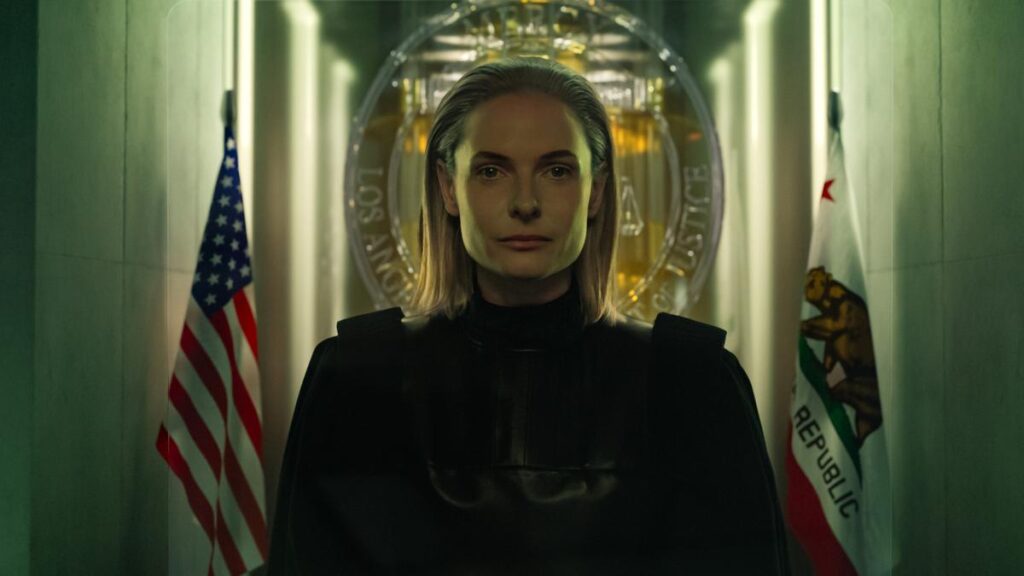
Upcoming movie Mercy will contend with proving guilt or innocence before an AI judge.~|~|nkEuuVxRVY
UPDATE: A critical debate on the role of AI in the judicial system unfolded today at SXSW Sydney, raising urgent questions about the ethics of automated sentencing. As artificial intelligence advances, concerns grow over whether AI could effectively replace human judges.
In a session titled “AI as judge, jury, and executioner,” legal experts, including Judge Ellen Skinner of the NSW District Court, explored the implications of AI in determining guilt and sentencing. The discussion comes as the release of the upcoming film “Mercy,” starring Chris Pratt, highlights a fictional scenario where an AI judge decides a man’s fate based solely on data inputs. Set for release in January, the film depicts a dystopian reality where a threshold of 92 percent certainty leads to execution, with no chance for appeal.
The urgency of the topic resonated with attendees as it touches on the very essence of human liberty and justice. Judge Skinner emphasized the necessity of human connection in the justice system, stating, “There is still something very significant about human connection, especially if the decisions made were to have any legitimacy.” She argued that while AI can enhance decision-making by providing evidence-based information, the potential for bias remains a crucial concern.
Ethicist Peter Collins underscored the paradox of bias in AI, noting that while AI could eliminate human biases, it could also inherit biases from historical data. “AI can actually be more ethical than human beings,” he stated, suggesting that AI could reflect evolving community values, particularly in sensitive areas like domestic violence.
Technology lawyer Matt McMillan reiterated the importance of scrutinizing AI systems, advocating for transparency in what data is fed into these models. “Machines aren’t there to replace judges,” he explained. “I see AI in the future as being a little bit like an intelligent sparring partner, which challenges and helps identify outliers, but ultimately it’s the human who remains the decision-maker.”
The debate at SXSW Sydney signals a growing recognition of the need for a careful approach to integrating AI into the justice system. As technology evolves, stakeholders must navigate the balance between efficiency and ethical responsibility. With significant decisions about human lives on the line, the conversation about AI’s role in justice is more critical than ever.
As discussions continue, the implications of AI in law will undoubtedly reverberate beyond the conference room, impacting legal systems worldwide. The outcome of this dialogue could shape the future of justice, demanding immediate attention and engagement from all stakeholders.
Stay tuned for more updates on this developing story as authorities, scholars, and legal professionals strive to define the boundaries of AI in the courtroom.






